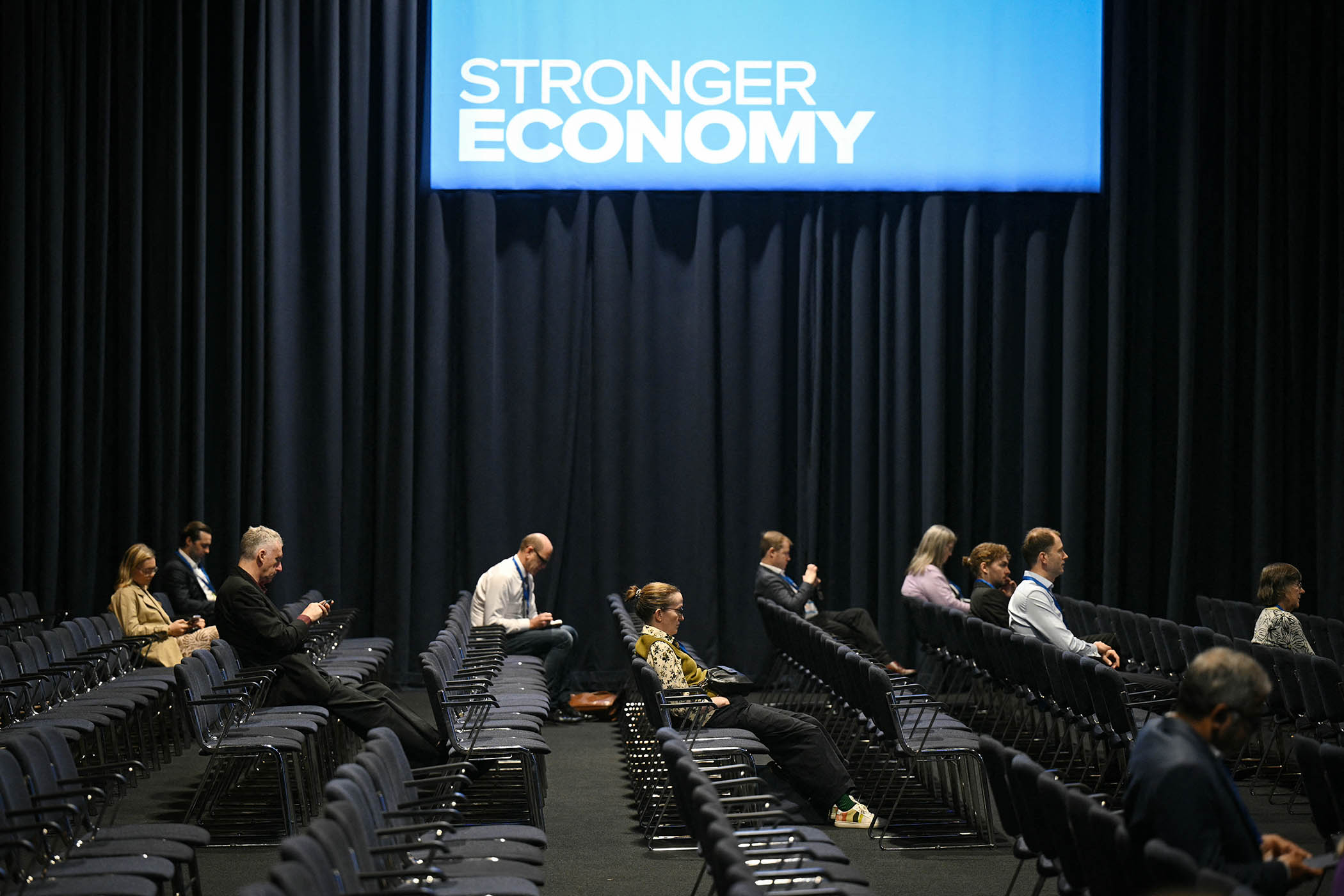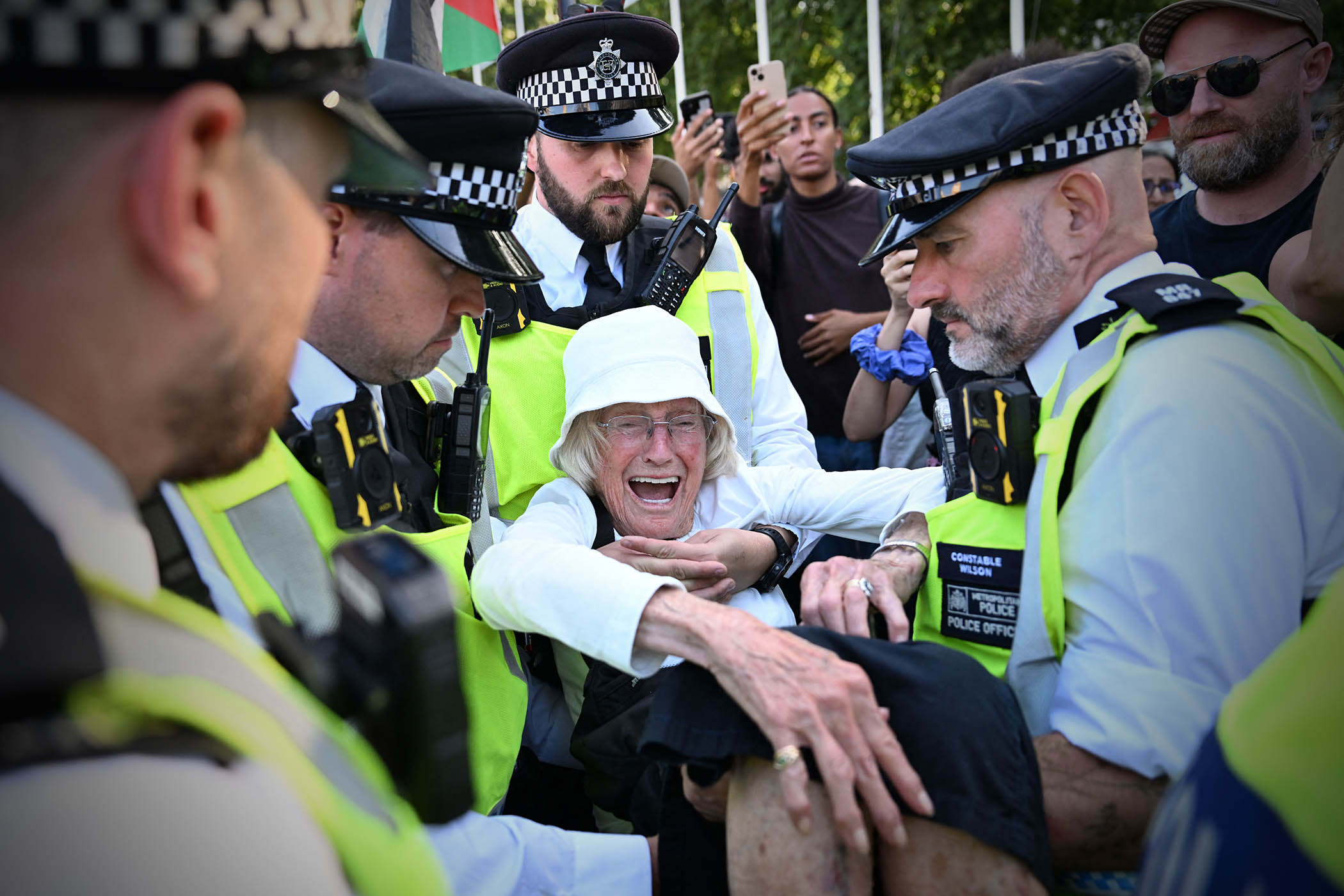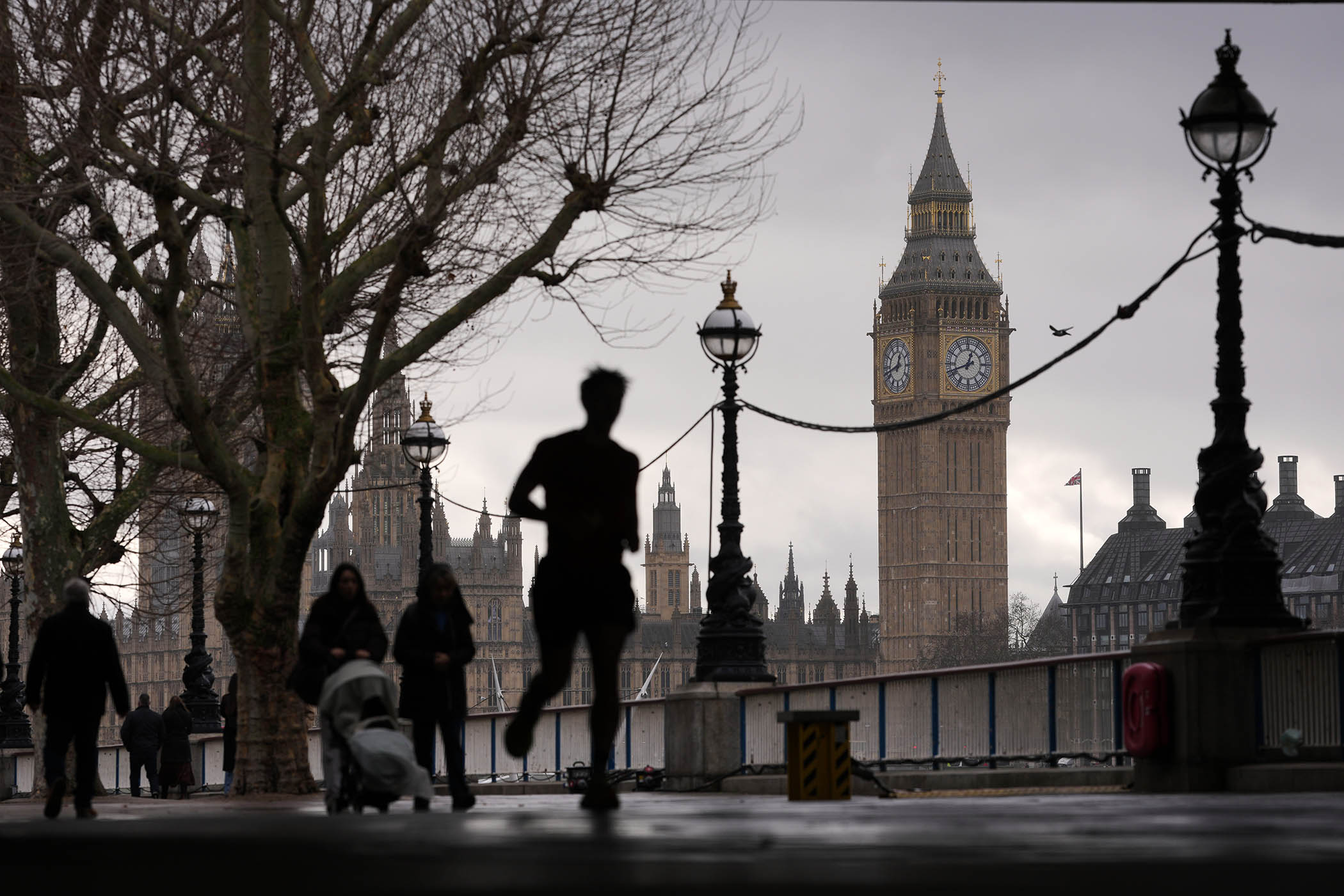Kemi Badenoch has insisted there is a “buzz” at the sparsely attended Conservative party conference in Manchester, after images of empty seats were taken as a symptom of her faltering leadership.
So what? It wasn’t convincing. Having lost 251 seats last year, the Tories’ polling numbers have got even worse, and the party that sees itself as the most successful in the world is staring into oblivion. Badenoch’s solution is a rightward lurch. She has announced plans to
•
scrap the UK’s world-leading climate targets;
•
leave the European Convention on Human Rights; and
•
toughen up on immigration.
Sinking ship. Ahead of the conference, Badenoch called the Conservatives a “distressed asset” in need of turning around. She is failing in this task. The party is polling at 17 per cent, down from 20 per cent in January and far behind Reform’s 27 per cent. Earlier this year it suffered its worst-ever local election defeat, and two of its MPs have defected to Reform.
Another blow. Yesterday the Conservatives lost 20 councillors to Nigel Farage’s party. This only added to the glum mood prevailing in Manchester.
Fed up. It will also fuel murmurs of a leadership challenge. For now, party donors still back Badenoch. But half of Tory members think she shouldn’t lead the Conservatives into the next general election. If one were held tomorrow, the party would win just 45 seats, according to a recent poll.
Looking ahead. Under Tory party rules, the earliest Badenoch can face a leadership challenge is November. Pressure will mount if the Conservatives perform badly in the next round of local elections in May.
The challenger. The most prominent candidate vying to replace her is Robert Jenrick, the shadow justice secretary. Despite losing last year’s leadership election to Badenoch, his right wing positions have increasingly come to define party thinking.
The pitch. In a Trumpian speech yesterday, Jenrick questioned the neutrality of the judiciary, suggested that illegal migrants are endangering communities, and called for the political appointment of judges – something that would move the UK closer to the model in the US, where Supreme Court nominations have become fierce bipartisan battles.
Back to bite him. Hours before Jenrick spoke, a recording emerged of him saying he did not see “another white face” on a visit to Birmingham earlier this year. He claimed he was commenting on integration, but his words drew accusations of racism.
Copycats. It is not clear if trying to emulate Reform will win back voters who want change. This tactic is also likely to further alienate centrist voters amenable to the Lib Dems, to whom the Conservatives lost dozens of seats in 2024.
Newsletters
Choose the newsletters you want to receive
View more
For information about how The Observer protects your data, read our Privacy Policy
Against the grain. Scrapping net zero targets looks particularly misguided: environmentalism is the most popular political cause in the UK, viewed favourably by 64 per cent of Britons.
Stuck in the middle. Labour also trails Reform and is in a similar dilemma. It thinks its best bet is to attack Reform head-on, while hardening its line on migration. But it faces threats on its left flank in the form of the Greens and the provisionally named Your Party, headed by Labour defectors Jeremy Corbyn and Zarah Sultana.
Tale of two conferences. The Tory conference came right after the Greens’ annual gathering, which was marked by a mood of buoyant optimism. The party increased its vote share from 2.7 per cent to 6.4 per cent last year, returning a record four MPs, and it now consistently polls at around 10 per cent.
Seizing the mantle. Its new leader, Zack Polanski, who was elected last month on an “eco populist” platform, wants to shed the party’s reputation for earnest environmentalism and has promised to “pick fights”. He wants to make the Greens the mainstay of the left, loudly supporting trans rights and Gaza and pledging to abolish private landlords.
What’s more… The flagging fortunes of Labour and the Conservatives, and the popularity of the Greens and Reform, are fragmenting British politics. It increasingly resembles Europe, where newcomers in France, Italy and Germany have upended the political establishment.



